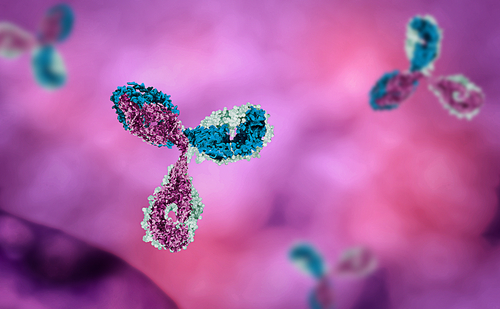Researchers Create Human-like Antibody for Treatment of Alzheimer’s, PSP
Written by |

Tau bio-logic and LifeArc researchers have generated a human-like antibody called TBL-100 for the treatment of Alzheimer’s disease (AD) and progressive supranuclear palsy (PSP).
An antibody is a large Y-shaped protein that’s naturally produced in response to invading foreign particles (antigens) such as viruses. A humanized antibody refers to an antibody that was generated in non-human species (commonly rodent) and whose protein sequence has been altered to increase its resemblance to naturally occurring human antibodies.
By humanizing antibodies, scientists are making them less prone to trigger an unwanted immune response.
Abnormal forms of the tau protein are known to have a tendency to aggregate and contribute to neurodegeneration.
Importantly, toxic tau clumps have been found in both Alzheimer’s disease and progressive supranuclear palsy. The latter is a neurodegenerative disorder that causes impairment of balance and walking, impaired eye movement, abnormal muscle tone, speech difficulties, and problems swallowing and eating.
TBL-100 targets the less abundant but highly toxic abnormally short fragments of tau (tauC3). This short protein fragment, although less abundant than full-length tau, exerts disproportionately large pathological effects.
Evidence indicates that tauC3 occurs in the early stages of Alzheimer’s and that its levels correlate with cognitive impairment.
Using brain tissue from Alzheimer’s patients to produce a lab-grown model, researchers have demonstrated TBL-100’s potential to block tau’s abnormal spreading activity, a hallmark of the disease.
The newly developed antibody is 100 times more likely to target tauC3 in comparison to other therapeutic antibodies in the market. TBL-100 also has a specificity that is 1,000 times greater than that of full-length tau. Tests indicate the antibody may have an improved efficacy and safety compared to other tau antibodies in development.
“Successful humanization marks an important milestone in the development of TBL-100, which we believe offers several advantages compared to other anti-tau antibodies and small molecule tau treatments in development, both in terms of safety and improved efficacy,” Daniel G. Chain, PhD, president and CEO of Tau bio-logic, said in a press release.
“We aim to rapidly advance this promising disease-modifying therapeutic agent for patients suffering from AD and PSP since these conditions currently lack effective therapies,” he said.





